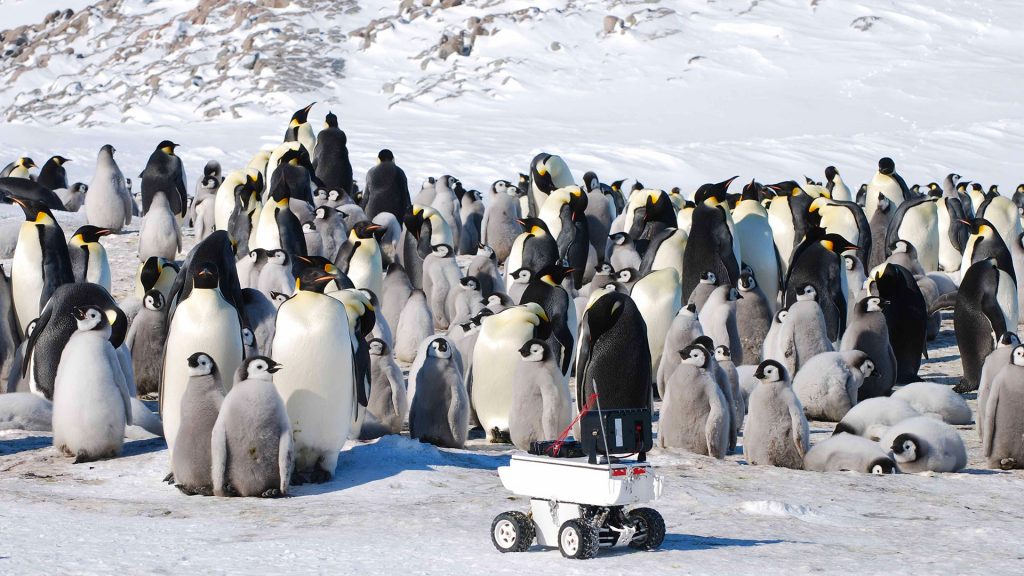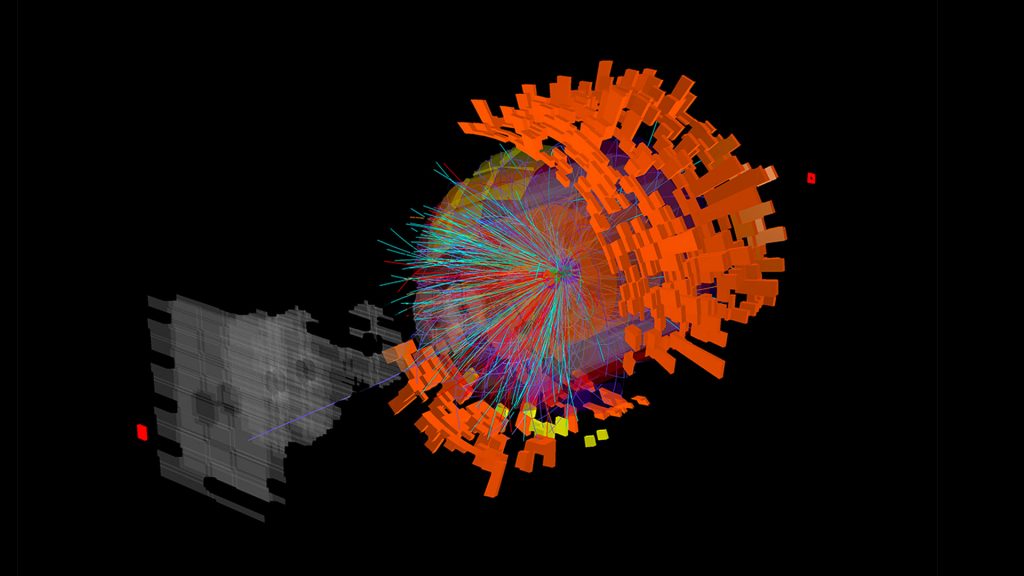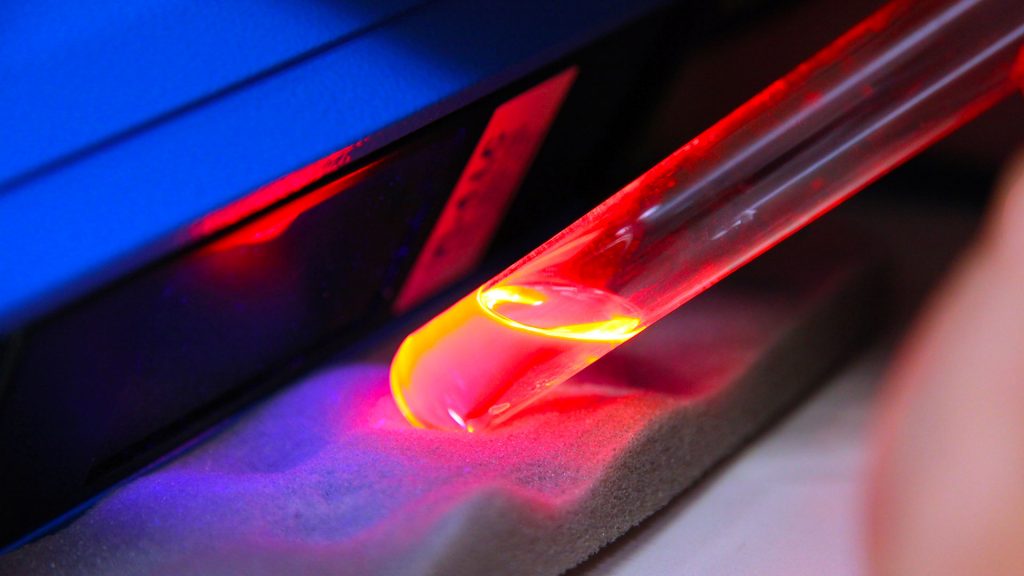You may also be interested by Jobs and internships
Ecology, physiology and ethology – DEPE

The Department of Ecology, Physiology, and Ethology studies the adaptive strategies used by animal species to confront natural or anthropogenic environmental constraints. Its researchers carry out ecophysiological, behavioural, and demographic research on native species, exotic species, and even human beings under natural and controlled conditions and in the laboratory. The goal is to evaluate the ability of species to survive in a rapidly changing world and to provide scientific knowledge that can inform decision-making.
Areas of expertise
- Applying ecological engineering in relation to wildlife
- Physiological energetics
- Long-term monitoring of animal populations
- Biochemistry and endocrinology
- Animal behaviour
- Modelling and analysis of social networks
- Mitochondrial function
Our areas of research
Adaptation of marine vertebrates to Environmental changes
The AVEC team seeks to determine the link between environmental changes and the ecological and evolutionary processes of animal species.
Ethology and evolutionary physiology
The EPE team considers animal physiology and behavior as phenotypic traits of individuals resulting from evolutionary processes, thus helping to explain individual fitness.
Health and physiological adaptations to gravity
The PAGRAS team seeks to understand the contribution of ecological, biological, socio-cultural and anthropological factors in the regulation of energy balance, weight and metabolic health.
Animal adaptations and Environmental management
The ADAGE team seeks to improve understanding of the functioning of socio-ecosystems by specifying the ecophysiological adaptations of wildlife to environmental conditions.
Subatomic Research – DRS

By exploring the properties and interactions of the subatomic particles that make up matter, the department’s physicists seek to understand the universe at all scales, from the infinitely small to the infinitely large. This field of study, which is both theoretical and experimental in nature, includes a variety of research domains, including nuclear physics, particle physics, and astroparticle physics. The Department of Subatomic Physics also carries out applied research, most often at the crossroads between disciplines, such as in radiochemistry and radiation protection.
Areas of expertise
- Signal acquisition and analysis
- Accelerators and beamlines
- Micro connectors
- Hybrid electronic systems
- CMOS active-pixel sensors
- Precision mechanics
- Data analysis and Big Data
- Designing imaging instruments
- Designing detectors and circuit boards
- Molecular radiolabelling
- Image reconstruction, quantification, and analysis
- Monte-Carlo simulation
- Preclinical experimental protocols
- Isotope production and R&D target systems
- Experimental validation of theoretical models
- Expertise with cyclotrons, beam control
Our areas of research
Theoretical physics
The main research themes of the Theory group are nuclear physics and particle physics. The activities cover formal and phenomenological studies, and large-scale calculations.
DNE – From nuclei to stars
The DNE group studies exotic structures, gamma spectroscopy, capture-fission dynamics in the region of heavy and superheavy nuclei, and fusion and nucleosynthesis reactions in massive stars.
Molecular imaging and radiobiology
A multidisciplinary research primarily focused on molecular imaging and methods for improving and monitoring hadron therapy treatment plans. Skills also put at the service of the Cyrcé Platform.
Molecular imaging
The activity of the Molecular Imaging group (formerly ImaBio) revolves around the development of instruments to assist surgeons in the treatment of breast cancer and the design of a multimodal imaging platform dedicated to small laboratory animals.
Radiobiology
The Radiobiology team develops new preclinical irradiation protocols with a view to improving future treatments and measuring the effects of proton irradiation on living organisms in order to improve models.
Energy, the environment and radiation dosimetry
Apply fundamental knowledge to respond to societal challenges in the field of energy, health and the environment.
DNR – Données Nucléaires pour les Réacteurs
The research activities of the Nuclear Data for Reactors (DNR) team are focused on improving the knowledge of (n,xn) reactions. Our research projects are mainly experimental and concern the development and use of detection systems for the precise measurement of (n, xn γ) cross sections.
Radiochemistry
The Radiochemistry group specializes in the chemistry of actinides and lanthanides, their speciation in solution for the search for new extraction processes and their behavior in the environment for problems related to their storage.
DeSIs – Dosimetry Simulation Instrumentation
The research work of the DeSIs group revolves around radiation protection issues for health, the environment and industry.
From the Big Bang to particles
Study the elementary constituents of matter to better understand, from the infinitely small to the infinitely large, the fundamental laws of the universe.
ALICE – A Large Ion Collider Experiment
The ALICE group at the IPHC exploits the ultra-relativistic collisions of the LHC (Large Hadron Collider) at CERN to probe the properties of strongly interacting matter when brought to temperatures capable of creating a new state, called Quark Gluon Plasma (QGP)
Belle II
The Belle II group analyzes lepton collisions to study flavor changes between quarks and discover new processes not described by physical theories.
CMS – Compact Muon Solenoid
The CMS group at IPHC is looking, among other things, for possible signs of charge-parity (CP) violation in the Yukawa coupling of the tau lepton. The group is also involved in the search for highly ionizing stable charged particles (HSCP), the search for displaced top quarks as predicted in models of new physics, and prepares the rejuvenation of the tracker for the high luminosity phase of the LHC.
Neutrino
The Neutrino group of the IPHC mainly dedicates its research to neutrino oscillations, to the study of CP symmetry violation in the neutrino sector and to the detection of extra-terrestrial neutrinos (GeV-PeV) for Physics or Astrophysics with neutrino telescopes.
OGMA – Observations with Gravitational waves & Multimessenger Astronomy
The research of the OGMA team is centred on multimessenger astronomy: the combination of gravitational, neutrino and electromagnetic observations to extract informations on astrophysical sources and their emissions, in particular on the origin of high energy cosmic rays.
PICSEL – Physics with Integrated Cmos Sensors and ELectron machines
The PICSEL group develops active monolithic pixel sensors, mainly for trackers and vertex detectors for present and future particle physics experiments.
Analytical sciences – DSA

The Department of Analytical Sciences aims at developing novel analytical techniques to understand the interactions between humans and their environment (e.g., pollution, diet) and for diagnosing and imaging of human diseases. To this end, the department is composed of researchers who are highly skilled in separating and analysing molecules; characterising molecular properties and functions; and, if necessary, designing new, better adapted molecules.
Areas of expertise
- Development and application of separation techniques
- Identification of natural bioactive molecules
- Bioassays for therapeutic products
- Extraction and analysis of metals
- Development of membrane and adsorption processes
- Bioproduction : energy, molecules of high added value
- Synthesis
- Quantitative proteomics
- Identification of biomarkers
- Characterisation of therapeutic proteins
- Structural and supramolecular mass spectrometry
- Luminescence spectroscopy
Our areas of research
LSMBO – Biochemical applications of mass spectrometry
The LSMBO team develops innovative methodologies in chromatography, mass spectrometry and bioinformatics applied to the proteomic analysis of peptides, proteins and biological complexes.
SynPA – Synthesis for analysis
The SynPA team is interested in the synthesis of new molecules, complexes and/or supramolecular assemblies and nanoparticles and their applications.
RePSeM – Molecular recognition and separation processes
The research of the RePSeM team focuses on the recognition, analysis, liquid-liquid and liquid-solid extraction of metals, and the chemical and energy recovery of biomolecules by innovative processes.
CambaP – Analytical chemistry for the study of bioactive molecules and pharmacognosy
The work of the CambaP team focuses on the research, analysis and identification of bioactive molecules with therapeutic or functional interest, from different matrices.



